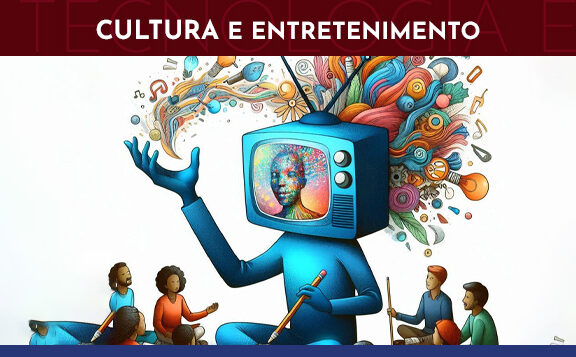
Culture vs. Entertainment: Understanding the Key Differences Impacting Today’s Youth (August/2024)
Nowadays, most of the teen population has exaggerated access to entertainment, and even though it sounds contradictory, there’s a noticeable lack of culture among these individuals. The reason for this is curious. The confusion between these two concepts happens frequently, leading young people to believe they are deeply engaged with culture when, in reality, they are only excessively consuming entertainment. Due to the mixed understanding of the two words, the modern population is dealing with the impacts of exaggerated enjoyment, believing they are growing in cultural experiences and expertise. The only plausible solution for this issue is to learn and differentiate the concepts of culture and entertainment.
According to the Cambridge Dictionary, the definition of entertainment is nothing more than shows, films, television, or other performances or activities that entertain people, which diverges from what is defined as culture by the same dictionary: the knowledge of a way of life, especially the general customs and beliefs of a particular group of people in a specific time. This confusion is why youths often use the word “culture” incorrectly, leading them to maintain bad habits, such as spending hours on their phones and making worthless use of social media, streaming apps, and video games. All of this occurs because, while consuming content that adds nothing to their knowledge of the world, adolescents believe they are growing in intellectual achievements. It’s evident that the lack of comprehension of language can cause deficits in interpretation and communication, which can lead to health issues, considering the dangers posed by excessive screen time. Believe it or not, more issues can arise just because of a language mistake.
The excessive focus on fun and pleasurable activities, at the expense of actual culture and learning, results in a lack of important information. This is evidenced by reports from institutions that track functional illiteracy—people who can read and write but cannot critically interpret what they read and are unaware of this deficiency. These institutions have found that almost 20% of the global population fits this criterion, proving that while people can read and write, a large portion cannot understand or effectively use the information they receive. This situation is similar to what happens to people who use sources of entertainment, believing they are getting smarter while only wasting their time, energy, and potential to grow intellectually. Finally, it becomes clear how confusing the concepts of culture and entertainment can lead to an absence of true culture and knowledge.
Therefore, we can now see how important it is to study our language and the meaning of the words we use almost daily. This simple action can completely change our understanding of the world around us and also make us more interesting people. For example, just by reading this text, you’ll be able to engage in a conversation about modern society with your friends.
By Eduarda Tostes, 1st-year High School Student.







